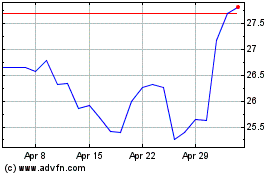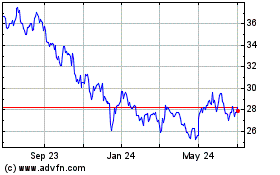By Liza Lin
Parts of the U.S. are further easing lockdowns this week and the
World Health Organization will hold its annual health assembly
online, as drugmakers race to develop a vaccine for the new
coronavirus.
As the number of cases exceeded 4.7 million globally, according
to data compiled by Johns Hopkins University, governments and
drugmakers are considering how to roll out vaccines, with the first
batches reserved for front-line medical workers. About 100 vaccines
are being developed globally, and eight of those -- from companies
like Moderna Inc. and Pfizer Inc. -- are already being tested on
humans.
The virus continued to spread in the U.S., the nation worst
affected by the pandemic with a third of the world's cases, nearly
1.5 million. Deaths in the U.S. rose above 89,500, more than a
quarter of the more than 315,000 world-wide, according to figures
from Johns Hopkins.
In Texas, gyms and movie theaters are set to reopen on Monday,
despite a rise in infections and virus-related deaths there. Idaho
on Saturday allowed dine-in restaurants to resume operations under
social-distancing rules. New Jersey permitted chartered-boat
services and watercraft rentals to resume on Sunday.
Warmer weather drew large crowds to beaches in New York City and
New Jersey over the weekend, highlighting the challenges that the
hardest-hit parts of the country face in enforcing social
distancing this summer. New York Mayor Bill de Blasio said he
doesn't want the city's beaches to open for swimming by Memorial
Day weekend.
New York Gov. Andrew Cuomo on Sunday urged New Yorkers to get
tested for Covid-19, the disease caused by the coronavirus. Mr.
Cuomo said the state is conducting about 40,000 Covid-19 tests a
day at more than 700 sites. New York has more than 350,000
infections and 22,600 confirmed virus-related deaths, according to
figures from the state.
Beginning Monday, 194 World Health Organization member states
will gather via videoconference for the WHO's annual World Health
Assembly. On the table for discussion is a resolution, led by the
European Union and Australia, calling for an independent review of
the global response to the coronavirus pandemic, and to question if
WHO acted to the best of its abilities to contain the disease.
In Asia, where infection rates rose early in many places,
countries including India and China remained on high alert. South
Korea, however, loosened some restrictions.
It reported 15 new cases on Monday and one new death. In a
reflection of the country's downward trend on fresh infections, the
U.S. military in South Korea eased restrictions against dining out,
going to off-base gyms, shopping and other outdoor activities.
Samsung Electronics Co. Vice Chairman Lee Jae-yong visited one
of the South Korean company's semiconductor factories in Xi'an,
China, on Monday -- a visit the company said was the first by a
global business leader to China since the coronavirus outbreak
became a global health crisis.
India on Monday registered its highest single-day increase in
confirmed infections for the second day in a row. The Ministry of
Health and Family Welfare reported more than 5,200 new cases,
bringing India's total to 96,169. More than 3,000 people there have
died from the disease, the ministry said.
The record numbers offered a fresh challenge to authorities, who
had sought to ease lockdown restrictions. India's government on
Sunday extended its nationwide lockdown to the end of the
month.
In China, where the disease first emerged in the city of Wuhan,
fears about a new wave of cases were sparked this month after new
clusters were discovered in the northeastern province of Jilin.
China reported seven new cases as of the end of Sunday, its
National Health Commission said. Four were imported, while two of
the three domestic cases were discovered in Jilin, which borders
Russia and North Korea. Chinese Vice Premier Sun Chunlan traveled
to the province over the weekend to learn more about efforts to
control the virus, according to local media. Authorities fired six
senior provincial officials on Saturday, according to the
province's account on the WeChat messaging service.
Japan on Monday said the pandemic helped push the country into a
recession. The world's third-largest economy after the U.S. and
China shrank by an annualized 3.4% in the first three months of
2020. That followed a contraction of 7.3% in the previous quarter
due to an increase in the country's sales tax. Two straight
quarters of contraction is one common definition of a recession.
Japanese Economy Minister Yasutoshi Nishimura said a worse result
is expected in the current quarter, after Prime Minister Shinzo Abe
declared a national state of emergency in April.
Elsewhere in the Asia-Pacific region, the picture is more
optimistic. In Thailand, one of the country's largest
retail-property chains opened its malls after nearly two months.
The company, Central Pattana PLC, said it opened its 33 malls
nationwide to shoppers on Sunday, while introducing new measures to
space out customers and facilitate contact tracing. Those include
scanning a QR code upon entering and leaving, in addition to
providing contact information, the company said.
Thailand reported three new infections on Sunday, bringing its
total to more than 3,000.
Australia's most populous state on Monday began its first full
week out of lockdown. Authorities in New South Wales released a
plan to help reduce citizens' use of public transportation during
peak hours. The state, home to the city of Sydney, will establish
temporary parking lots and bike lanes and increase access to
pedestrian paths.
Write to Liza Lin at Liza.Lin@wsj.com
(END) Dow Jones Newswires
May 18, 2020 06:07 ET (10:07 GMT)
Copyright (c) 2020 Dow Jones & Company, Inc.
Pfizer (NYSE:PFE)
Historical Stock Chart
From Mar 2024 to Apr 2024

Pfizer (NYSE:PFE)
Historical Stock Chart
From Apr 2023 to Apr 2024
